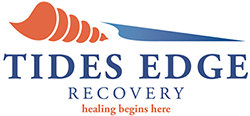To understand the definition of opiates, you must know what the drugs in this class do to your brain and body. In addition, you should understand the mechanism that leads to addiction to these substances and why an opiate detox program at Tides Edge Detox can save lives.
What Is the Definition of Opiates?
Opiates are a classification of drugs derived from the opium poppy plant. Similarly, opioids are synthetically produced versions of these drugs. These opioids may be made from opiates or completely synthetic. Examples of opioids include oxycodone, heroin, methadone, fentanyl, tramadol, and hydrocodone. Opiates and opioids are often used for pain relief or to treat opioid dependence.
All opiates share a fundamental structure that derives from the opium poppy plant. These chemicals mimic endorphins found in your brain and spinal cord. Endorphins activate the same nerve cells on which opiates/opioids bind to reduce your body’s reaction to pain. Other chemicals, such as serotonin and dopamine, are also affected by opiates/opioids. These substances affect mood, pleasure, motivation, appetite control, memory, and attention span.
Both opiates and opioids work in the same way to affect the brain. These drugs can make you feel pain relief and euphoria. Due to how good these substances make you feel, misusing legal prescription versions of these drugs or abusing illegal variations is highly likely.
On the one hand, some opiates, such as tramadol and oxycodone, are prescription drugs and legal to take if recommended by your doctor. Others, like heroin, are illegal. However, if you have a history of prescription opioid abuse, you have a 4% to 6% chance of switching to illegal and stronger heroin. Of those addicted to heroin, about 80% of them started by taking prescription opiates.
All opiates are highly addictive. Therefore, every drug in this class is under tight government regulations.
How Do Opiates Affect the Brain?
The definition of opiates includes those drugs that connect to natural opioid receptors in the brain. When activated, these opioid receptors cause your brain not to recognize pain signals. In addition, the brain releases dopamine, which makes you feel euphoric.
These two responses of the brain make taking opiates feel rewarding. On the other hand, if you stop taking these drugs, you will also feel serious withdrawal symptoms. The combination of feeling good when you take these drugs and bad when you don’t make quitting extremely difficult without a drug detox center.
Opiates attach to the opioid receptors in the brain, which leads to pain relief and euphoria. This drug also tricks your brain into releasing dopamine, which adds to the rewarding feeling of opiates. Quitting is tough without help because you will experience serious withdrawal symptoms if you do it alone. The good feelings when taking these drugs and the bad feelings when not taking them make it difficult to quit.
Over time, your brain will get used to the current amount of opiates you take. To get the same pain relief and high, you will need to increase the dosage. The more you take, the harder it is to stop using the drug. Because quitting is difficult, you should get help through our opiate and opioid detox center or similar programs.
Why Do I Need Opiates Detox?
Now that you can understand the definition of opiates, you should understand why stopping these drugs requires help. If you have regularly used opiates, your brain chemistry has undergone changes. These changes will produce withdrawal symptoms when you stop taking any drug in the opiate family.
During recommended medical detox, you will need medical professionals to watch you for signs of severe withdrawal and give medications to reduce those. Withdrawal from opiates and opioids causes the following:
- Severe cravings
- Leg movements that you cannot control
- Goosebumps and feeling cold
- Vomiting and diarrhea
- Muscle and bone pain
How soon you have these symptoms depends on if you took fast-acting or long-acting drugs. However, most opiate withdrawal symptoms start within a few hours. To cater to the varying needs of different opiate and opioid withdrawal, we offer several forms of detox care:
- Fentanyl detox treatment program
- Heroin detox treatment program
- Oxycodone detox treatment program
- Methadone detox treatment program
Where to Find a Detox Center for Opiate Addiction
Knowing the definition of opiates is the first step. If these drugs control your life, you need detox to stop taking them. Contact us at Tides Edge Detox at 866.723.3127. We can help you detox from these and other substances and transition into opiate addiction rehab. During your call, you will find out more about how you can detoxify your body under medical supervision. After detoxing, your next move is treatment, which can take you to a life where you do not need opiates to feel good.









